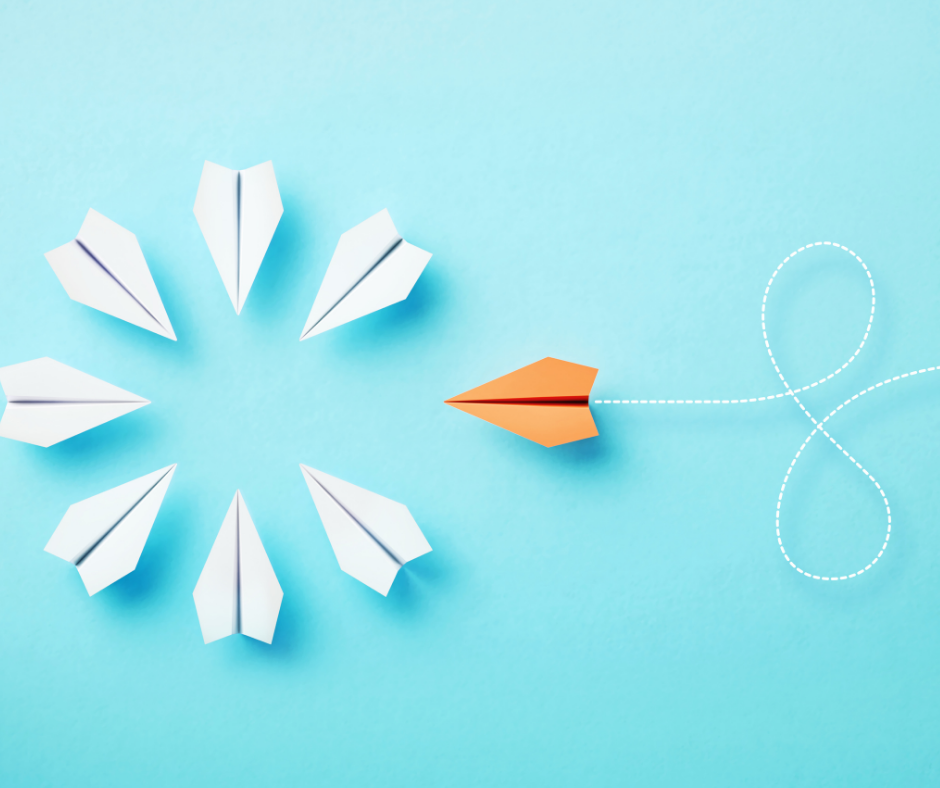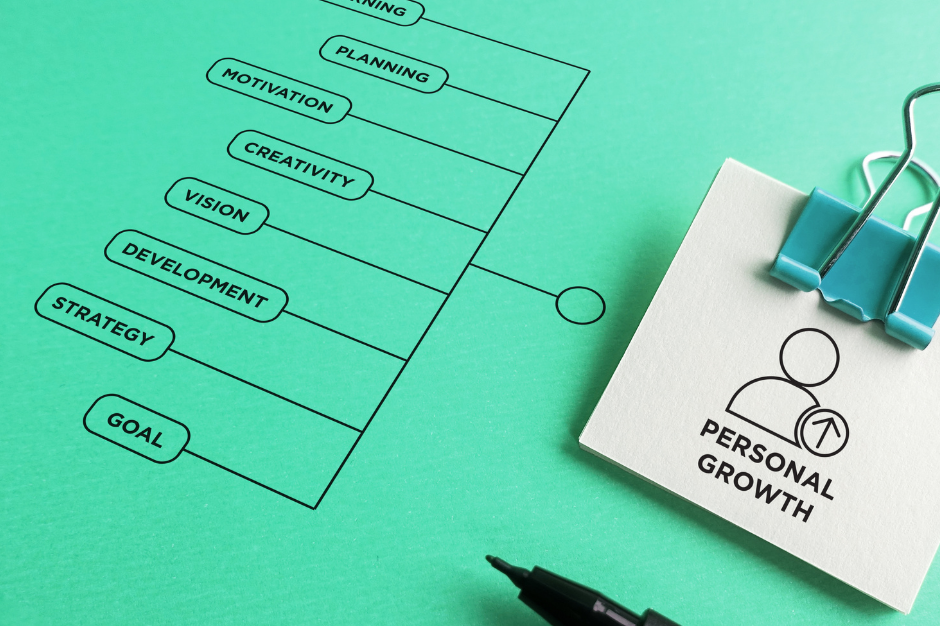10 Financial Tips for Investing in Your Personal Brand
Start taking one of your most important financial opportunities seriously - the asset of You.
Your personal brand could be one of your most important financial assets. So, how often do you stop to view it with this lens? When it comes to your personal brand, be financially aware. Invest wisely. Leverage the business of You.
My favourite book is Rich Dad Poor Dad by Robert Kiyosaki (also my favourite author). Kiyosaki’s best-seller has topped the charts for decades. It challenges all accepted conventions. Before its booming success, traditionalists ridiculed the principles in the self-published book. These principles are now embraced by millions across the world.
One of Kiyosaki’s observations of the ‘poor dad’ mentality is that you’re indoctrinated to follow a path. Go to school, work hard, get a good job, climb the ladder and retire with benefits. This limits your ability to see possibilities that lie beyond this framework. Not considering how you’re also building wealth outside of your 9–5. And investing in other assets. Investing for both financial and intellectual return.
Tip #1: Embrace the beauty of compound interest for your personal brand
Albert Einstein said,
“Compound interest is the eighth wonder of the world. He who understands it, earns it … he who doesn’t … pays it.”
In The Slight Edge, Jeff Olson advocates that success is created over time through consistent daily disciplines. That every day you have a choice to master the mundane. Doing the things that are easy to do — but, equally as easy not to do. An error in choice sends you closer to failure, and at first, goes unnoticed.
Each positive action directs you closer to success. It also goes unnoticed. Yet, it is the compounded energy that cultivates a quantum leap.
Personal branding isn’t about overnight success. It’s a long game. Like dollars that build up in your bank account over weeks, months and years.
Tip #2: Diversify your personal brand’s portfolio into other assets
Diversify your income streams. You likely understand that relying on your salary or business income alone is risky. It’s maybe why you consider investing in real estate and paper assets. But, are you investing in your skills, talent and expertise outside of your 9–5 or into new services?
Ideas for monetising your personal brand include:
Starting a YouTube channel
Starting a blog
Writing a book
Starting a Podcast
Creating a specialised social media account
Creating an online coaching program
Consulting
Introducing new services
Joining affiliate marketing programs
If you attract a specific audience, you have something businesses want — attention. Because we live in an attention economy.
Income might come from advertising (like monetised YouTube channels or blogs), partnerships or commissions from affiliate programs or services you create.
Some activities may even have passive income potential. But, remember, few things are truly passive. Some may take significant upfront time, energy or money, like setting up a course or writing a book. Some may need smaller, consistent efforts, like hosting a blog, YouTube channel or Podcast.
The niche you focus on will also have an impact on your appeal to advertisers. Research your desired sector. You may never earn a dollar directly from the platform. So, make sure it’s something of value to you regardless.
Different platforms vary in their return on investment or profitability. For example, for the majority, podcasts are said to be difficult to monetise for any advertising value of significance. But, by showcasing your expertise, they help channel your audience into other platforms or services.
For passive income opportunities, consider evergreen content. It’s the reason why YouTube still serves you relevant videos created years ago.
Tip #3: Investing in digital real estate for your personal brand
It’s perhaps the easiest and most low-cost investment you could make for your personal brand — your own domain name. If you have kids, consider securing it for them too. Aim to buy a domain that reflects your own name or close alternatives. A domain costs around $30 or less annually to maintain.
See this as the foundation of a home for your personal brand. When you’re ready to build a website on top of it, it will house your expertise.
While building communities online is fantastic, consider the land you’re building on. Do you own it or rent it? Building your network on social media only is building on borrowed land.
Build relationships via your own personal email list, website or even your phone. It moves your relationships to more stable ground. Property that can’t easily be reclaimed by third parties or made redundant by market forces.
Tip #4: Pay yourself first
Whether it’s a high-value hobby or creating content, invest time into whatever is going to make you the best version of your personal brand.
Wake up earlier if you have to or save your emails for later in the morning. Do one thing that’s going to ‘pay you’ first. Much like you’re told to apply your own oxygen mask in the event of an emergency first. Do what enriches you, before you aim to assist others.
Tip #5: Focus on personal brand being valuable, not looking rich
The Psychology of Money by Morgan Housel shares an important lesson in wealth. Real wealth, that which isn’t displayed, thus is hidden, can’t be easily seen by others.
“One of the most powerful ways to increase your savings isn’t to raise your income. It’s to raise your humility.”
For, personal branding, often mistaken as an act of self-promotion or vanity, this is an important reminder. Outward expressions of your personal brand should be visceral to you. And never to try to impress others.
Instead of wearing your income outwardly, focus on building real, usually unseen, wealth. And remember this includes your wealth of knowledge.
Don’t try to look rich or important, work on actually being valuable to others.
Tip #6: Save for a rainy day
If you’re creating content for your personal brand, get ahead of your publishing schedule. Life happens and things don’t always go as predicted. Have a few extra posts, podcasts or videos under your belt. This builds your reserve for more challenging times. It also ensures consistency for your audience. And if you’re a creator who has monetised your talent, it keeps your income stream following.
Tip #7: Produce for your personal brand, before you consume
As Kiyosaki explains, there’s a reason why the ‘rich’ receive the tax benefits they do. They are incentives. Incentives that reward producers. Producers who create the value that helps the economy thrive.
So, instead of only focusing on what you produce in your 9–5, ask yourself how else you can become a ‘producer’.
As Marie Forleo advocates:
“Create before you consume.”
Remember, this is also the era of the creator economy, which is nested within the attention economy.
Tip #8: Give
I once spent a year reading 52 financial books. The best of them had one theme in common — give back. Kiyosaki goes even further. He proposes that, if you don’t have a giving or abundant mindset, you shouldn’t expect to receive at all. Giving is not what you do once you’re successful. Giving comes before your success.
Tip #9: Your network is your net worth
Whether it’s face-to-face, online or ideally both, invest in genuine relationships.
Be part of communities or, better yet, create your own. Create the communities you wish you were a part of. If you can’t find a game to join, create your own game. And invite others to join you.
Tip #10: Invest in your financial and intellectual wealth for your future self
Financial success rarely happens overnight. You act for the benefit of your future self. Putting away dollars or investing for long-term gains.
The same is true for your personal brand. Whether it’s your wealth of knowledge or finances, keep taking consistent actions. Your future self will thank you.
A word about Warren
The Psychology of Money shares an important reminder about one of the most successful investors of our time — Warren Buffet. When people discuss his wealth, they often ignore key context. Buffet invested consistently, not only for years but for decades.
I’d add that he is also a prolific reader. Spending 5–6 hours a day reading. Plus, he didn’t expand his lifestyle unnecessarily to match his growing wealth. He still lives in the house he bought in 1958 for US$31,500. Now said to be worth an estimated US$329,505.
When it comes to securing your financial future, become a wealth of knowledge. Create value for others by generously sharing it. And, play the long game; your return on investment compounds over time, in many more ways than one.
How are you investing in your personal brand?




